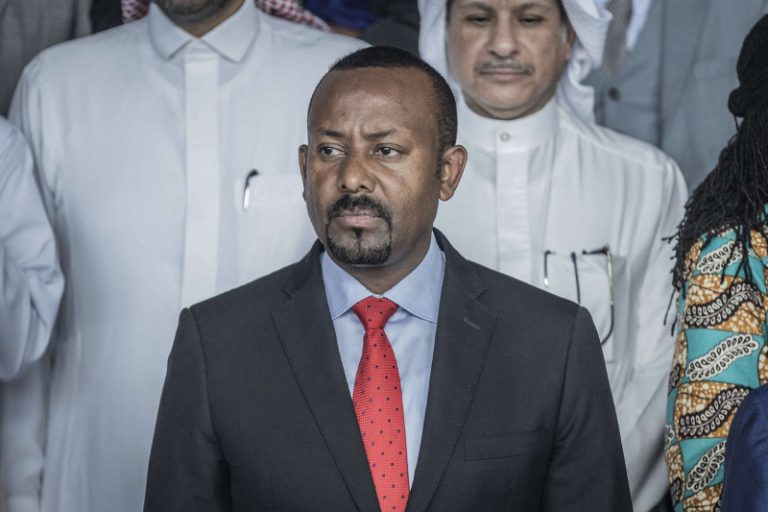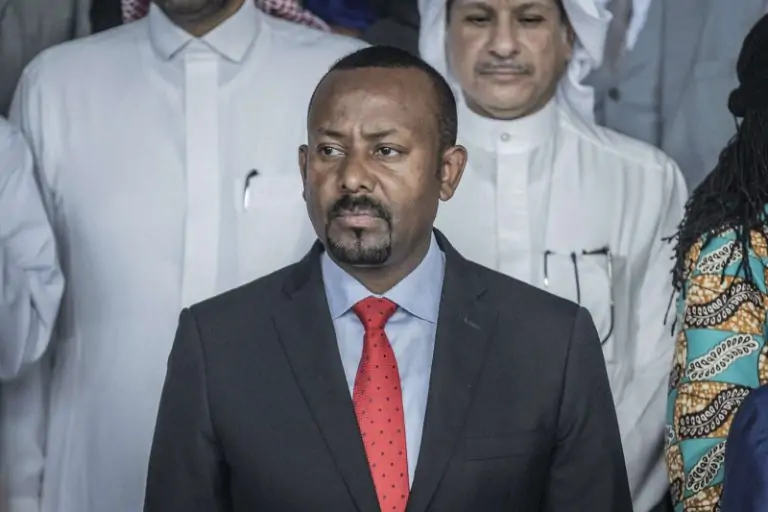

tensions escalate over ethiopian somaliland deal igad summit seeks resolution
As tensions between Ethiopia and Somalia intensify over a disputed lease agreement with Somaliland, the Intergovernmental Authority on Development (IGAD) has called for an emergency summit. The meeting, set to take place on January 18, aims to address the growing geopolitical rift and find a diplomatic resolution to the escalating situation.
The core of the discord revolves around a memorandum of agreement (MoU) signed between Somaliland President Muse Bihi and Ethiopian Prime Minister Abiy Ahmed. The contentious deal proposes Ethiopia leasing a 20-kilometer coastline stretch in Somaliland for a commercial port and military base in exchange for recognizing Somaliland’s sovereignty. Somalia vehemently opposes the agreement, labeling it a violation of its sovereignty and raising regional concerns.
Recent events have exacerbated the strained relationship. An Ethiopian Airlines flight carrying high-level government officials and operating without a schedule was denied access to Somali airspace, further escalating tensions. The African Union (AU) and IGAD have urged dialogue to address the brewing crisis, emphasizing the need for a diplomatic solution.
The IGAD summit, chaired by Djibouti’s President, Ismail Omar Guelleh, seeks to intensify efforts toward regional stability, sovereignty, and territorial integrity. The IGAD Secretariat’s Workneh Gebeyehu, a former Ethiopian Foreign Minister, has come under fire for his statement expressing “deep concern” over Ethiopia-Somalia relations, which has made the summit more significant. Diplomatic channels will play a crucial role in navigating the complexities and finding common ground.
The international community has closely watched the dispute, with numerous nations and organizations expressing support for Somalia. The conflict resolution body within the African Union has voiced concerns over rising tensions, urging caution. In a surprising move, Sudan has decided to withdraw from the summit, citing the need for its military officials to engage in direct conversations before participating in broader dialogues. This decision marks a shift in Sudan’s stance and reflects the intricacies of regional dynamics.
As leaders gather for the IGAD summit, the focus remains on finding diplomatic solutions to de-escalate tensions and foster regional stability. The complex geopolitical landscape necessitates careful navigation to address the concerns of all involved parties. The outcome of the summit will likely shape the future trajectory of relations in the Horn of Africa, underscoring the significance of diplomatic dialogue in resolving disputes.
Against the backdrop of escalating tensions between Ethiopia and Somalia, the Intergovernmental Authority on Development (IGAD) has convened a high-stakes summit on January 18, aiming to defuse the geopolitical crisis sparked by a contentious Somaliland lease agreement. The summit unfolds as a critical diplomatic juncture, seeking to untangle the complex web of issues and foster regional stability.
The heart of the disagreement lies in a memorandum of agreement (MoU) inked between Somaliland President Muse Bihi and Ethiopian Prime Minister Abiy Ahmed. The deal, entailing Ethiopia leasing a 20-kilometer coastline in Somaliland for a commercial port and military base, has strained relations, with Somalia vehemently opposing it as an infringement on its sovereignty. The IGAD summit becomes a diplomatic arena to address these deep-seated grievances and find common ground.
Recent events, such as the denial of an Ethiopian Airlines flight access to Somali airspace, have heightened tensions, signaling the urgency for diplomatic intervention. Both the African Union (AU) and IGAD have called for dialogue, emphasizing the need for diplomatic solutions to prevent further escalation. The IGAD Secretariat, under the leadership of Workneh Gebeyehu, faces scrutiny, highlighting the delicate balance required in navigating regional dynamics.
The international community closely watches the Ethiopia-Somalia dispute, with diverse reactions and expressions of support for Somalia. Notably, Sudan’s decision to withdraw from the summit adds a layer of complexity. Citing the need for direct military discussions before engaging in broader dialogues, Sudan’s move signals evolving alliances and underscores the intricate regional dynamics at play.
As the IGAD summit unfolds, diplomatic efforts take center stage. Chaired by Djibouti’s President, Ismail Omar Guelleh, the summit seeks to intensify regional stability and address concerns over territorial integrity. The outcome holds significant implications for the Horn of Africa as leaders grapple with finding diplomatic pathways to ease tensions and foster collaboration.
US Secretary of State Marco Rubio ordered South African Ambassador Ebrahim Rasool to leave America by March 21 because he…
Early 2025 ends with IPL fever in India and cricket fans receive good news of an international schedule full of…
National teams from Africa advance their World Cup qualification pursuit as they take part in Matchday 5 of the qualifiers.…
Creative Africa Nexus (CANEX) is running the Book Factory Prize for Publishing in Africa again to award $28,000 to African…
Canadian companies have expanded their presence as major African mining stakeholders and invested more than $37 billion. Africa holds the…
The South African government wants people to plant one million trees across the nation within a single day on September…
This website uses cookies.